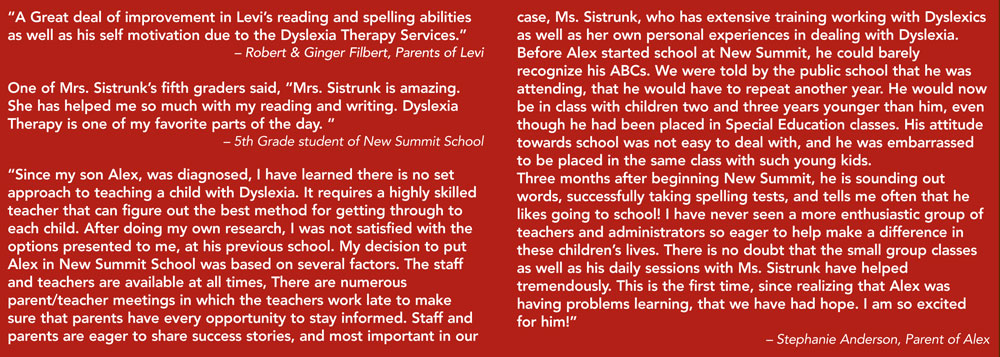By KATE SISTRUNK
Could you imagine reading something over and over and over and not being able to grasp anything it says? Imagine having trouble taking notes in class because you cannot process what they are saying fast enough or even spell what they are saying. Now imagine being a kid who’s terribly embarrassed by it all—and afraid to ask for help. This situation for kids can be a nightmare. It was for me and is for countless children sitting in classrooms across the country.
As a child, I experienced all of these things, which made school a struggle for me. Unfortunately, I went to a school where appropriate accommodations weren’t made. To maintain a solid “C” average, I had to invest a great deal of time into schoolwork outside of the classroom. I struggled to understand how my friends and classmates seemed to exert less energy, but always seemed to get an “A”. I often wondered why learning was so hard for me when it seemed to come so easily for my classmates. My self-esteem suffered as a result, and impacted me adversely. Because I was afraid that others would laugh at me, I never asked questions or wanted to read aloud in class. I was very insecure with academics. Luckily, my mother got me involved in extracurricular activities. I excelled which boosted my self-esteem. Finally, I was good at something!
At age 16, I was diagnosed with ADD, Dyslexia, Dysgraphia, and Dyscalculia—no wonder I had been struggling! It was in college that I finally began to understand more about troubles with education and learning. I began receiving accommodations for my learning difficulties and it made all the difference. I went from being a “C” student in high school to a college student on the Dean’s List! I dedicated myself to helping other children with similar experiences by graduating with a Bachelor’s in Education.
Following college, I began my career as a teacher, which included time in a traditional classroom—as well as a stint as the director of a program that assisted students with learning needs. It was both empowering and fulfilling to assist students in ways others couldn’t—because I understood these kids. I could relate, I knew what it is like to study or to read and just not be able to grasp it! Moreover, I could speak from experience when I would tell the students that it wasn’t a lack of effort, or laziness that was affecting their academic performance. Hearing that sort of thing from the children would bother me so much because I knew it just wasn’t true! I knew why these students were so frustrated with school. I had been there! No child wants to be lazy—every student wants to please.
I now work for New Summit School where I provide Dyslexia Therapy and Diagnostic Services. It has been a blessing for me, and for our students. I am able to work with individuals that have a diagnosis of Dyslexia, as well as those that do not. In both instances, I am able give them the help that they need to succeed academically. In my 10 years of experience in education, I have never seen a program have such a positive impact on students.
The Dyslexia Therapy program is research based. It is founded in widely accepted best practices in the field of Dyslexia Therapy. At New Summit School, we offer the program five days a week and are seeing immediate results! The gains made by students are exciting. As a means of extending this service to students outside of New Summit School, we offer therapy after-hours by appointment. My goal in life is to help as many students as possible. To help them realize they can read and they will be successful.


